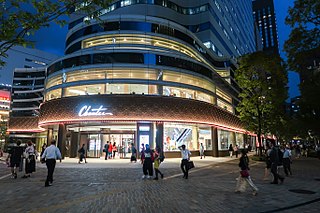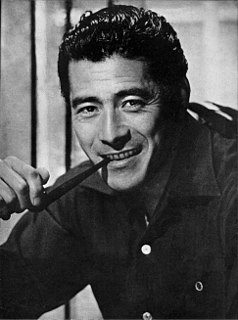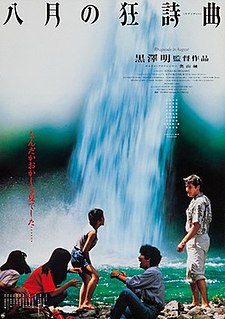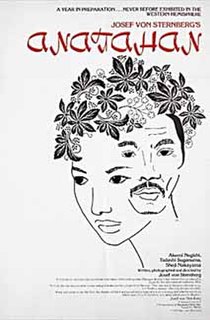
Akira Kurosawa was a Japanese film director and screenwriter, who directed 30 films in a career spanning 57 years. He is regarded as one of the most important and influential filmmakers in the history of cinema.

The cinema of Japan has a history that spans more than 100 years. Japan has one of the oldest and largest film industries in the world; as of 2010, it was the fourth largest by number of feature films produced. In 2011 Japan produced 411 feature films that earned 54.9% of a box office total of US$2.338 billion. Movies have been produced in Japan since 1897, when the first foreign cameramen arrived. In a Sight & Sound list of the best films produced in Asia, Japanese works made up eight of the top 12, with Tokyo Story (1953) ranked number one. Japan has won the Academy Award for the Best Foreign Language Film one time, more than any other Asian country.

Toho Co., Ltd. is a Japanese film, theater production, and distribution company. It has its headquarters in Yūrakuchō, Chiyoda, Tokyo, Tokyo and is one of the core companies of the Hankyu Hanshin Toho Group. Outside Japan, it is best known as the producer and distributor of many kaiju and tokusatsu films, the Chouseishin tokusatsu superhero television franchise, the films of Akira Kurosawa, and the anime films of Studio Ghibli, TMS Entertainment and OLM, Inc.. Other famous directors, including Yasujirō Ozu, Kenji Mizoguchi, Masaki Kobayashi, and Mikio Naruse, also directed films for Toho.

Toshiro Mifune was a Japanese actor who appeared in over 150 feature films. He is best known for his 16-film collaboration (1948–65) with Akira Kurosawa in such works as Rashomon, Seven Samurai, The Hidden Fortress, Throne of Blood, and Yojimbo. He also portrayed Miyamoto Musashi in Hiroshi Inagaki's Samurai Trilogy and one earlier Inagaki film, Lord Toranaga in the NBC television miniseries Shōgun, and Admiral Isoroku Yamamoto in three different films.

Juzo Itami, born Yoshihiro Ikeuchi, was a Japanese actor, screenwriter and film director. He directed ten films, all of which he wrote himself.

Ishirō Honda, sometimes miscredited in foreign releases as "Inoshiro Honda", was a Japanese film director and screenwriter. He is best known for his kaiju and tokusatsu films, including several entries in the Godzilla series, but also worked extensively in the documentary and war genres earlier in his career. Honda was also a lifelong friend and collaborator of Akira Kurosawa, and worked with Kurosawa extensively during the 1980s and 1990s.

Kamatari Fujiwara was a Japanese actor.

Donald Richie was an American-born author who wrote about the Japanese people, the culture of Japan, and especially Japanese cinema. Although he considered himself primarily a film historian, Richie also directed a number of experimental films, the first when he was 17.

Rhapsody in August is a 1991 Japanese film by Akira Kurosawa based on the novel Nabe no naka by Kiyoko Murata. The story centers on an elderly hibakusha, who lost her husband in the 1945 atomic bombing of Nagasaki, caring for her four grandchildren over the summer. She learns of a long-lost brother, Suzujiro, living in Hawaii who wants her to visit him before he dies. American film star Richard Gere appears as Suzujiro's son Clark. The film was selected as the Japanese entry for the Best Foreign Language Film at the 64th Academy Awards, but was not accepted as a nominee.
United International Pictures is a joint venture of Paramount Pictures and Universal Pictures which distributes some of their films outside the United States and Canada. UIP also had international distribution rights to certain Metro-Goldwyn-Mayer and United Artists films when MGM was part of the venture. In 2001, MGM left UIP, and signed a distribution deal with 20th Century Fox's overseas arm.
Motoyoshi Oda was a Japanese film director.

Fumio Hayasaka was a Japanese composer of classical music and film scores.
Eternity is a controversial 1943 Chinese film made in Japanese-occupied Shanghai during the Second World War. The film was a collaborative effort between the Japanese-controlled Manchukuo Film Association and Chinese filmmakers that remained in Shanghai under the Japanese-controlled Zhonglian Productions brand.
Nobuo Nakamura was a Japanese actor, who made notable appearances in the films of Akira Kurosawa and Yasujirō Ozu in the 1950s and 1960s. Perhaps his most famous roles in the West were those of the callous deputy mayor in Kurosawa's Ikiru (1952), and the hairdresser's henpecked husband in Ozu's Tokyo Story (1953).

Anatahan (アナタハン), also known as The Saga of Anatahan, is a 1953 black-and-white Japanese film war drama directed by Josef von Sternberg. The World War II Japanese holdouts on Anatahan also inspired a 1998 novel, Cage on the Sea.

Daiei Film Co. Ltd. was a Japanese film studio. Founded in 1942 as Dai Nippon Film Co., Ltd., it was one of the major studios during the postwar Golden Age of Japanese cinema, producing not only artistic masterpieces such as Akira Kurosawa's Rashomon and Kenji Mizoguchi's Ugetsu, but also such popular film series as Gamera, Daimajin, Zatoichi and Yokai Monsters. It declared bankruptcy in 1971 and was acquired by Kadokawa Pictures.

Something Like an Autobiography is the memoir of Japanese film director Akira Kurosawa. It was published as a book in 1981 and the English translation by Audie E. Bock appeared the following year.























